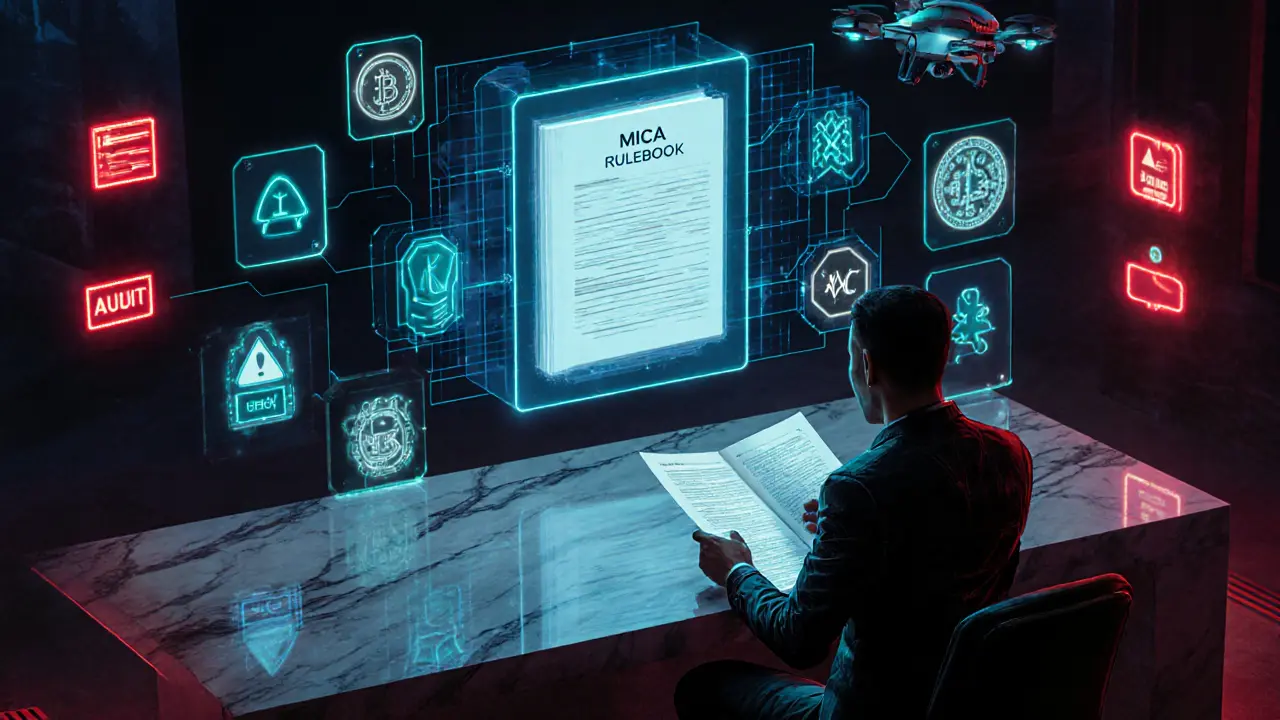Malta's MFSA crypto rules under MiCA are among Europe's strictest and most advanced. Learn licensing requirements, fees, whitepaper rules, and how to stay compliant in 2025.
MFSA Crypto Rules: What You Need to Know About Malta's Crypto Regulations
When it comes to MFSA crypto rules, the regulatory framework set by Malta’s Financial Services Authority for cryptocurrency businesses. Also known as Malta crypto regulation, it’s one of the clearest and most structured systems in the world for crypto firms seeking legal standing. Unlike places where crypto is banned or ignored, Malta built its entire approach around transparency — requiring exchanges, wallets, and blockchain startups to register, prove security, and show they’re not running scams.
The Financial Services Authority, the official regulator overseeing financial markets in Malta, including crypto assets doesn’t just hand out licenses. It demands real proof: audited smart contracts, clear team identities, anti-money laundering procedures, and customer fund protection. If you’re running a crypto exchange in Malta, you can’t hide behind anonymity. The crypto licensing, the formal process crypto businesses must go through to operate legally under MFSA oversight process can take months, and many fail because they think a whitepaper and a website are enough. They’re not.
These rules don’t just affect big firms. If you’re a trader using a Maltese exchange, you’re protected by rules that force platforms to keep customer funds separate from company money. That’s not true everywhere. In places with no clear rules, your crypto can vanish if the exchange goes under. Malta’s system doesn’t guarantee profits, but it does stop outright fraud. It also means crypto projects based in Malta have to follow strict disclosure rules — no more anonymous teams or fake whitepapers.
And it’s not just about exchanges. The MFSA also watches token sales, staking services, and even crypto ATMs. If a project wants to raise money through tokens in Malta, it has to tell the regulator what those tokens actually are — are they utility tokens, security tokens, or something else? The line matters. Misclassify a token, and you could be breaking securities laws. That’s why so many blockchain teams pick Malta: they want to operate in the open, not in the shadows.
But here’s the catch — MFSA crypto rules aren’t static. They change as the market does. In 2023, the authority tightened rules around stablecoins and DeFi protocols. In 2024, they started requiring more detailed reporting on on-chain activity. What worked last year might not fly today. That’s why traders and developers need to stay updated. You can’t rely on old guides or forum posts. The rules are live, and they’re enforced.
Below, you’ll find real examples of how these rules play out — from projects that got shut down for skipping compliance, to exchanges that passed the audit and kept operating. You’ll see how Malta’s approach compares to other countries, and what happens when a crypto firm ignores the MFSA entirely. This isn’t theory. These are cases that happened, and they’re still affecting people today.

